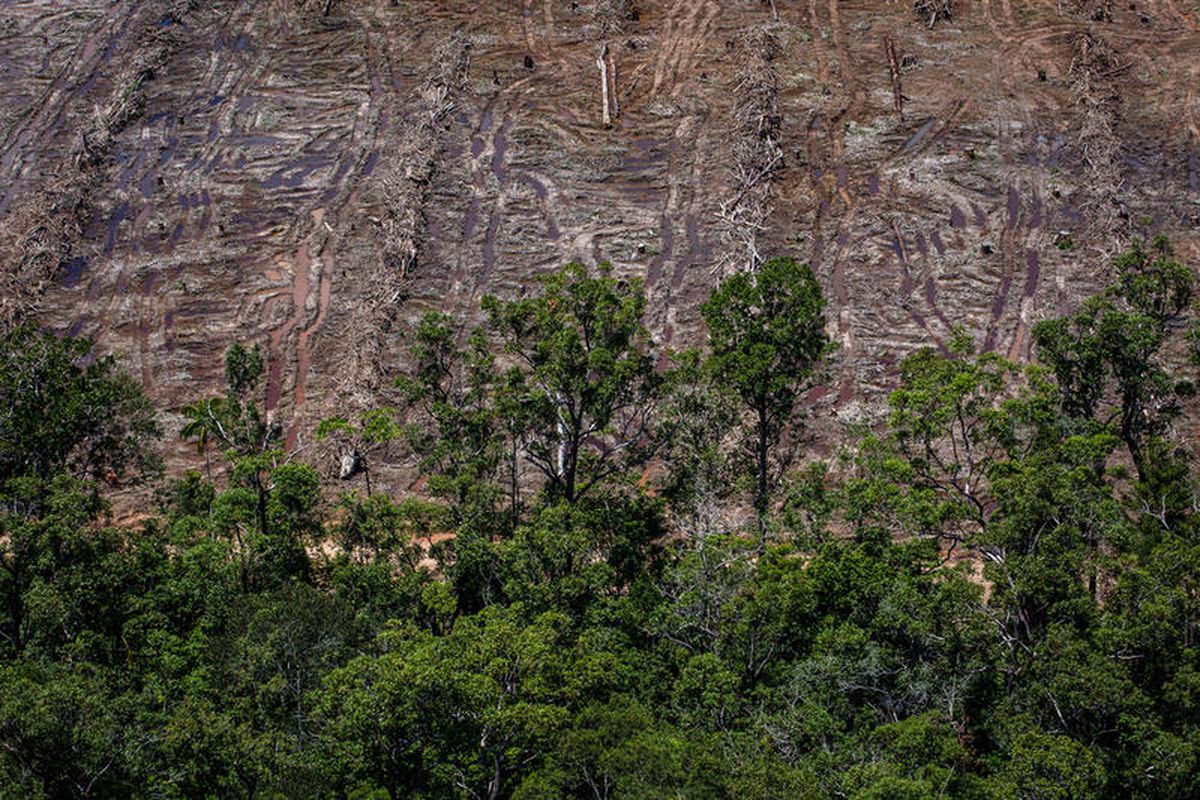Tropical forest size of England destroyed in 2018: WRI report
As per recently published US-based World Resources Institute (WRI) report, world lost 12 million hectares (30 million acres) of tropical tree cover in 2018. It is fourth largest annual decline since global satellite data become available in 2001. According to report, with such decline world’s forests entered in ‘emergency room’ implying that planet’s health is at stake and mere band-aid response will not help.
Key Highlights
- Study showed new deforestation hotspots in Africa, like Ghana and Ivory Coast, the increase in tree loss was due to illegal mining, small-scale forest clearing and expansion of cocoa farms.
- Most destruction was seen in Brazil (13,500 sq-km), Congo (4,800 sq-km), Indonesia (3,400 sq-km), Colombia (1,800 sq-km), Bolivia (1,500 sq-km) and Madagascar lost 2% of its entire rainforest in 2018
- Only Indonesia showed reduction in loss of its primary forest from past 2 years. It has world’s 3rd largest total area of tropical forest and is biggest producer of palm oil. Therefore, forest destruction was mainly due to land clearance for oil-palm plantations, which was reduced once government imposed a moratorium on forest-clearing.
- According to annual assessment by scientists of Global Forest Watch ( which uses satellite imagery and remote sensing to monitor tree cover losses from Brazil to Ghana) almost 1/3rd of area destroyed (~36,000 square km) was pristine primary rainforest ( consists of mature trees that absorb more carbon and are harder to replace).
- According to Mighty Earth, (a global environmental campaign organization), deforestation causes more climate pollution than all world’s cars, trucks, ships and planes combined.
Importance of Forest
- Forests act as Carbon sink by absorbing about 30% of man-made GHG emissions (over 11 billion tons of CO2 per year) on other hand ocean soaks another 23%. So, losing vast tracts of tropical forest not only releases carbon into atmosphere, it also reduces size of carbon sink. Therefore, it is vital to protect what we still have.
- Because of deforestation, indigenous communities are most vulnerable to losing their homes and livelihoods, aggravates climate change (as absorb 1/3rd of planets greenhouse gas emissions produced globally), biodiversity loss.
About World Resources Institute
It is a global research non-profit organization, headquartered in Washington, D.C., United States. It was established in 1982. It works to promote environmental sustainability, economic opportunity, human health and well-being. Its focuses on 7 key areas: food, forests, water, energy, cities, climate and ocean.
Month: Current Affairs - April, 2019


